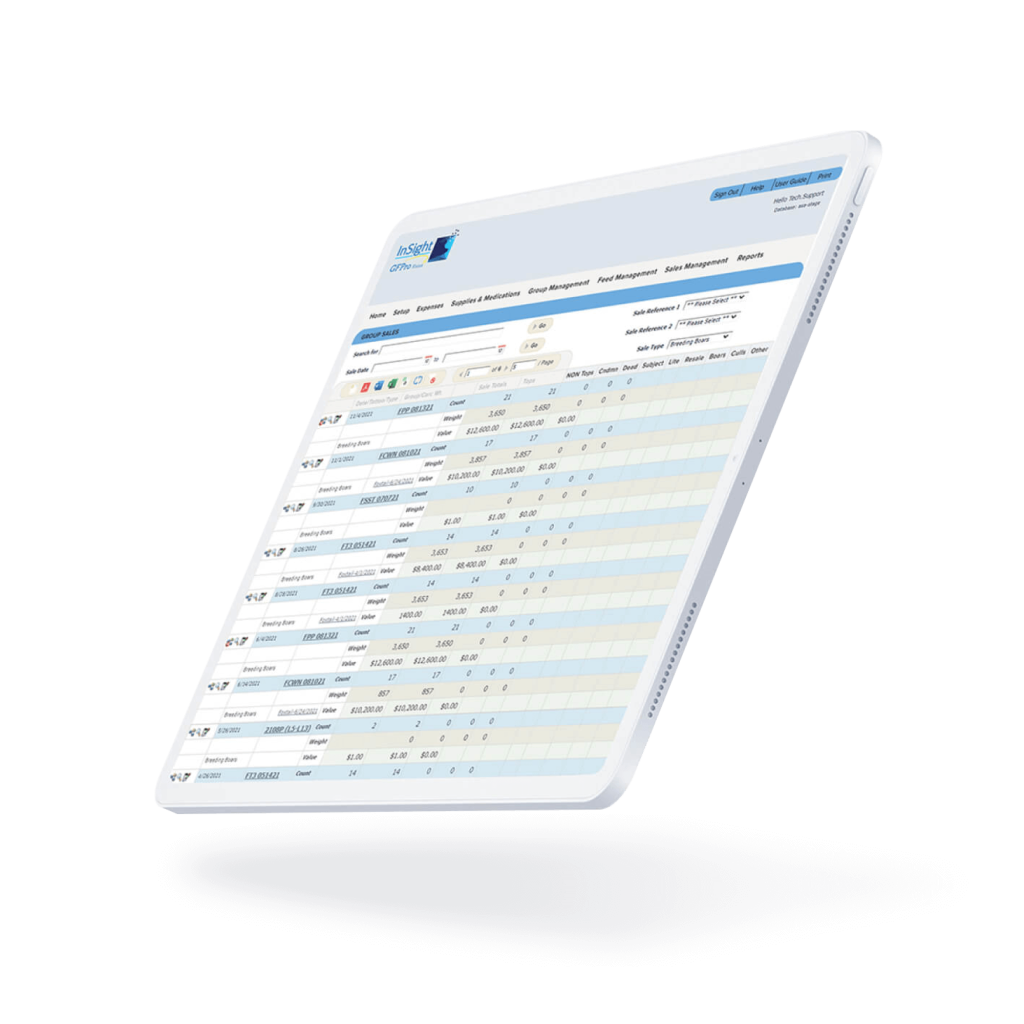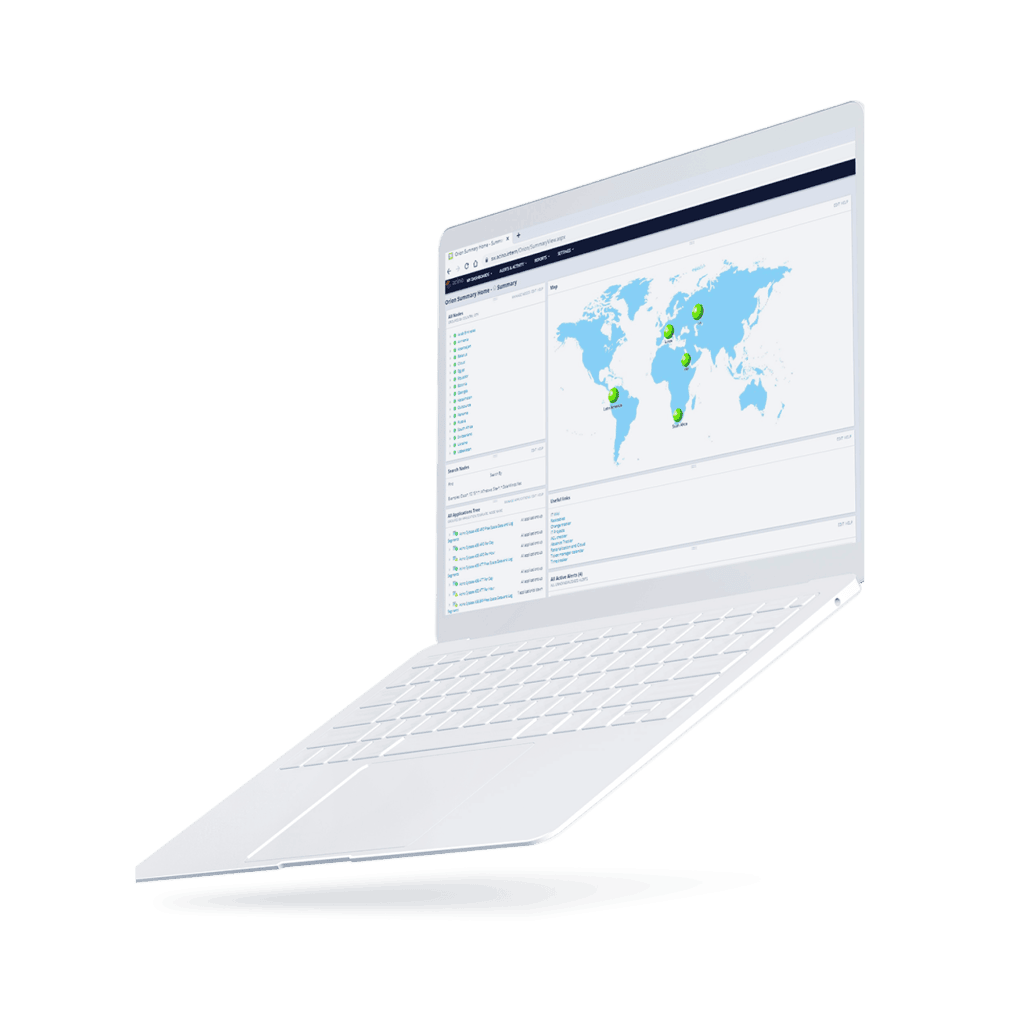
Information technology (IT) is a large part of nearly every business's operations today. It improves business processes and products, which translates to higher revenue. Additionally, IT helps develop new businesses by ensuring information accuracy. And IT boosts customer satisfaction by making products more reliable.
However, the reliability of a company's IT systems depends on the quality of its maintenance and support services. This guide explains the different aspects of IT maintenance and support services and how they help businesses stay competitive.
What Are Maintenance and Support Services in IT?
IT maintenance and support are commonly used interchangeably, but each term refers to a different aspect of IT service. And you must understand both of them to manage the IT environment effectively.
IT maintenance entails preventing and solving errors to keep the IT environment healthy. The service may include identifying and tracing any necessary modifications to the software. The maintenance team also conducts an impact analysis to establish how the suggested changes affect application performance.
The maintenance team also designs and implements a software solution. This process involves configuring the existing applications to operate precisely as desired. The specialists finally test the software to ensure it works as expected.
IT maintenance services include preventive activities such as regular backups, patch management, and security scans.
On the other hand, an IT support service focuses on providing help when things go wrong. For instance, you can contact the IT support team with product inquiries. The support team can answer questions and guide how to use products correctly.
There are three primary levels of technical IT support.
L1 is the initial point of contact for customers, typically called a Service Desk. Here, technicians will prioritise customers' issues and provide basic troubleshooting. The service providers use the available predefined steps and documented solutions to resolve customer issues.
The second level (L2) involves more in-depth troubleshooting, such as analysing system log files or inspecting the underlying hardware architecture. These technicians are also responsible for providing recommendations to customers on how to improve their systems.
L3, the third and highest level of technical IT support, is system administration. This entails managing configuration changes, deploying hardware and software updates, and creating disaster recovery plans in case of a system failure or attack. The technicians are skilled and highly knowledgeable about the underlying platform and its components.
Importance of Maintenance and Support Services For Businesses
Support and maintenance experts can help to keep your systems running efficiently for smooth operations. These services can also help create secure environments to protect your data and limit the risks of a security breach. Here are more benefits of IT maintenance and support services for businesses.

Types of Maintenance and Support Services
You have different software maintenance and support types depending on your desire. Here are some of the common types.
Application Maintenance and Support
Your business depends on applications to perform daily tasks and operations. Without proper maintenance, these applications can become obsolete. An application maintenance and support service helps prevent this by providing necessary upgrades.
Database Maintenance and Support
Data is the most valuable asset of any business. A database maintenance and support service helps ensure your databases remain secure and perform optimally. The maintenance and support team can create a disaster and backup recovery plan for your databases.
Network Maintenance and Support
Your network must always remain secure and reliable for a business to operate efficiently. Your IT maintenance and support team will monitor the performance of your network infrastructure, provide necessary updates, and configure security settings as needed.
Help Desk Services
A help desk service provides technical support to customers or employees when they need assistance with their devices or applications. The service is often an online platform where users can submit tickets or queries about an issue they face. The IT team then responds promptly with solutions.
Differences Between Maintenance and Support Services
While the two services have nearly the same goals, maintenance and support services have different purposes. Here are some differences to notable differences.
Scope
The main difference between these services is the scope of work. IT maintenance team fixes nearly all types of software and application apps. The services are also categorised into four main types as follows.
Predictive Maintenance and Support
This maintenance involves diagnostic tools that detect problems before they occur and prevent system downtime. The team monitors your system to anticipate failures and make corrections before they occur.
Preventive Maintenance and Support
This one is probably the most commonly sought maintenance service. The process may involve updating and upgrading the existing software and hardware to ensure the system runs optimally.
Preventive software maintenance may include creating backup systems, testing, and data recovery services.
Corrective Maintenance and Support
The software or hardware may run into problems that require a correction to restore the system to its optimal performance. Corrective maintenance help identify the root cause of a problem and provide solutions. It involves bug fixing, troubleshooting, designing efficient workflows, implementing security procedures, etc.
Adaptive Maintenance and Support
This type of service is also known as enhancement maintenance. The goal here is to make your IT infrastructure agile and adaptable to changes in the market.
The specialists may introduce new functions or features that can help improve customer experience or optimise operations.
On the other hand, IT support has a limited scope. The support team comes through during emergencies, primarily when the system suddenly breaks down and requires immediate fixing. The experts can fix a system that fails, perhaps due to a bug or technical default.
Clients Type
IT maintenance team focuses on clients whom they've contracted for services. After supplying software or application, they primarily provide long maintenance and corrective measures.
In contrast, the IT support team serves a wider range of customers, including those who don't have an ongoing service contract or subscription. They are mainly focused on emergency response services and bug fixing.

Benefits of Maintenance and Support Services
These IT services ensure smooth and efficient operations in your business by offering the following perks.
Bug Fixing
For your applications to run as expected, they must be free of bugs and glitches. Bugs are errors in the code that make an application behave erratically.
Your IT maintenance and support team will fix bugs and other glitches so your applications remain stable. And due to the experts' technical knowledge, they can quickly trace the source of a problem and fix it without extensive downtime.
Enhance Capability
The software market constantly evolves, and your IT systems must keep up with the changes. You must keep changing your application's features and functions to make them competitive. Your IT maintenance and support team will help enhance your applications' capability with upgrades and updates.
Performance Monitoring
Your IT maintenance and support specialists will continuously monitor the performance of your systems. The specialists can detect problems before they escalate into issues and take preventive measures to ensure optimal performance. The team can also perform system analysis to identify bottlenecks affecting their capabilities.
Technical Support
The experts in your maintenance and support team are trained professionals, so they provide technical assistance when needed. Don't overlook the importance of qualified professionals who can quickly answer questions or solve problems.
Enhance Customer Satisfaction
Your customers will be satisfied with your services if they can access them quickly and without disruptions. Your maintenance and support team provides fast solutions to prevent downtime, which is essential for customer satisfaction.
Additionally, when customers get the help they need promptly, it reinforces a positive impression of your company and builds trust with your clients.
Protect Data
Cybersecurity threats have become pervasive, and businesses must take adequate measures to protect their confidential data. IT maintenance and support services can help create secure environments and prevent malicious hackers from accessing your systems.
For example, the support and maintenance experts use anti-virus software and firewalls. The team can also perform regular security checks to ensure your systems are not at risk.
Challenges in Providing Maintenance and Support Services
Despite the many maintenance and support perks, the providers face some challenges in their day-to-day operations.
Managing Cybersecurity Threats
Reports in 2022 showed that 39% of businesses in the UK identified at least one cyber attack. Cybercriminals are getting more sophisticated, and businesses must ensure their systems remain secure.
Providers of maintenance and support services have to use advanced security measures to protect customer data from malicious attacks. The specialists also need qualified professionals who can identify threats and take preventive measures before they cause damage.
Dealing With Talent Shortage
IT is a complex field and requires highly skilled professionals. Unfortunately, there is a huge gap between professionals' availability and demand.
Companies that offer maintenance and support services must keep up with the changing technology landscape but can only do that with qualified personnel. The providers must overcome this shortfall by offering competitive salaries, improved training programs, and solid career prospects.
Cloud Computing
Cloud support is critical for companies that rely on cloud-based platforms. The providers of maintenance and support services must understand the intricacies of cloud computing and its implications. The experts must also be able to offer reliable solutions to customers who want to migrate their workloads to the cloud.
The Role of Maintenance and Support Service Providers
The primary role of maintenance and support providers is to ensure IT systems' availability, reliability, and performance. The professionals monitor computer systems and organisations' networks and take corrective action when problems arise.
The specialists also provide technical support for users who need help with their IT infrastructure or applications. Moreover, the team can offer upgrades and updates to the systems or manage the organisation's cloud-based solutions.
IT consulting is also part of the services. The experts provide valuable insights and advice on technology purchases, system architecture design, or software development services.

Factors to Consider When an IT Maintenance and Support Service Provider
With so many maintenance and support service providers in the market, it can be hard to choose the right one. Here are some of the factors you should consider when selecting a provider.
Responsiveness
You cannot afford to have downtime in your IT systems. Therefore, you need a service provider who promptly responds to your requests and solves the issue.
Check the provider's customer service record and availability. Ensure they offer round-the-clock support and have a team to attend to emergencies.
Experience
IT is an extensive field, and selecting a provider with adequate experience in the industry is essential. Consider providers who have successfully implemented similar projects and can provide concrete results.
The experts should also understand the different types of software development services or other technologies you need.
Flexibility
The provider should be flexible and offer various solutions for different budgets, needs, and requirements. They should also have an established process to create customisability when needed.
Best Practices For Implementing Maintenance and Support Services
It is important to have a clear strategy to ensure efficient maintenance and support services implementation. Here are some best practices that you can use.
Impact Analysis
The experts should analyse the effect of suggested changes on the system's functionality and performance. The team should consider the risks and business requirements before making any modifications.
Communication
The IT maintenance and support service provider should communicate regularly with customers to provide feedback. Moreover, they must inform customers when crucial changes are in progress or scheduled.
Case Studies of Successful Maintenance and Support Service Services
Knowledge Transfer and Support of Pharma IT Infrastructure
The Challenge:
Acino, a pharma company, needed an experienced external technology partner to take over operational knowledge and support its IT infrastructure and portfolio of applications. This had to be done within two months with minimal disruption to operations.
The Solution:
ELEKS provided an agile team of architects, business analysts, and support specialists with expertise in software engineering, solution administration, and multi-platform and multi-stack experience. They built an entirely new IT team in Ukraine with ELEKS-operated support that ensured business continuity. Within four months, they resolved 250+ business application tickets, 520+ infrastructure tickets, and 190+ SharePoint tickets.
The Result:
ELEKS successfully transferred Acino’s IT operations functions with minimal disruption to the client’s business. They also streamlined communication with key stakeholders and technical teams and provided all-encompassing support for 33 business-critical applications, 30+ offices, and 300+ servers. In addition, they optimised Acino’s infrastructure for greater performance and cost-efficiency.
L2/L3 Support and Enhancement of an Agriculture Analytics Platform
The Challenge:
InSight was facing a challenge in 2021 – they had an analytics platform that provided US pork producers and their advisors with production statistics, sales records, and health information to help facilitate performance improvement and maximise profitability; however, the software package was out of date and falling behind the times. InSight needed to breathe new life into its platform with re-modelling and solid support for the software package.
The Solution:
InSight contacted ELEKS to help them with their challenge. ELEKS provided an efficient support team for stable platform performance and took responsibility for technical product shaping. During the two years of cooperation with lnSight, ELEKS implemented several features and solutions: designing and implementing an advanced report from scratch; simplifying and automating the reporting process, billing procedure, and data visualisation; enabling the platform's expansion into other geographical regions.
The Results:
The partnership between lnSight and ELEKS resulted in the platform being modernised, enhanced, and optimised for scalability into other geographies. The L2/L3 support team increased the stability and usability of the swine production analytics platform, making it less effort-intensive to maintain. This ultimately helped prolong the technological and economic life of the software package, as well as increase its profitability.
Emerging Trends in Maintenance and Support Services
The key to staying on top of the competition is to stay updated with the latest IT maintenance and support services trends. Here are a few emerging trends your managed IT service team should watch out for.
Cloud Computing
The demand for cloud-based services increases as more organisations move to the cloud. The providers must understand the different models and be able to develop a custom solution that works best for their customers.

Related Insights








The breadth of knowledge and understanding that ELEKS has within its walls allows us to leverage that expertise to make superior deliverables for our customers. When you work with ELEKS, you are working with the top 1% of the aptitude and engineering excellence of the whole country.

Right from the start, we really liked ELEKS’ commitment and engagement. They came to us with their best people to try to understand our context, our business idea, and developed the first prototype with us. They were very professional and very customer oriented. I think, without ELEKS it probably would not have been possible to have such a successful product in such a short period of time.

ELEKS has been involved in the development of a number of our consumer-facing websites and mobile applications that allow our customers to easily track their shipments, get the information they need as well as stay in touch with us. We’ve appreciated the level of ELEKS’ expertise, responsiveness and attention to details.
